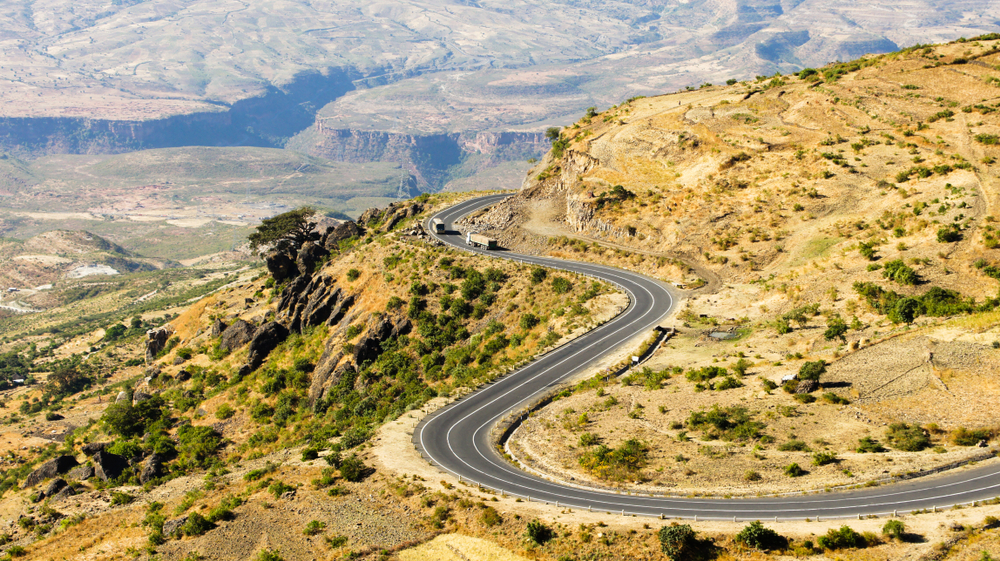The scars of European invasion and exploitation run deep in Africa. Centuries of fighting, pillaging, and colonization have taken their toll on the continent and most cultures are now smudged facsimiles of their original selves.
But then there’s Ethiopia.
Ethiopia is the only African country that hasn’t been colonized or overpowered by a European nation (the closest anyone got was a brief Italian occupation during World War II). Here you’ll see a vibrant, proud, and perfectly preserved African culture, largely untouched by outside influence.
Everything about Ethiopia is unique, making it the perfect destination for adventurous travelers on the hunt for something different. But while you’ll be experiencing sights, sounds, and tastes that you won’t find anywhere else, you’ll also be dealing with some peculiar ways of doing things. Traveling through Ethiopia isn’t like traveling through Europe or the Americas, or even through the rest of Africa.
Let’s take a look at five things that the guidebooks won’t tell you: the ins and outs of Ethiopia that every visitor should know before stepping foot in this stunning country.
Hostels aren’t a thing yet
While backpackers make up a sizable slice of the Ethiopian tourism pie, backpacker infrastructure is decidedly lacking. A search for ‘hostels in Addis Ababa,’ the country’s capital and the launching pad of any Ethiopian adventure, offers up a grand total of two results at the time of writing, neither of which is particularly appealing. Backpackers are instead obliged to choose from a more extensive range of hotels and cozy bed and breakfasts that are thankfully well priced, but don’t offer quite the opportunity to socialize like hostels do.
If you’re a lone backpacker looking for the company of travel buds, it’s worth spending some time researching the best accommodation options. Some hotels and B&Bs will have more common areas than others.
Moving around is either really expensive or really hard

Let’s say, like many an Ethiopian tourist, you’ve decided to work out your travel plans when you get there. Upon landing in Addis Ababa, you’ll learn that this large, mountainous country can be traversed one of two ways: by plane, which will get you to most places in around an hour but can be extremely expensive, or by bus, which is extremely cheap but will get you to most places in a day and is wildly inconvenient to book.
Online bus reservations aren’t a thing in Ethiopia. Phone reservations aren’t a thing either. If you want to get from point A to point B by bus, you need to go to the office and book a ticket at a counter. Now this wouldn’t be an issue if you were able to hop straight on a coach after you were handed your stub, but in Ethiopia, you need to book in person around 3 days before the bus leaves. Many a visitor has been caught off guard by this administrative quirk, stuck twiddling their thumbs in Addis while their valuable holiday time is tipped down the drain. If you choose to travel by bus, you need to book well ahead. Sort out your itinerary early and buy all your tickets in one go.
Pro tip: flying into Ethiopia with Ethiopian Airlines qualifies you for heavy domestic flight discounts. Paying a little more for an Ethiopian Airlines flight into the country could save you a lot of money and hassle traveling within it.
You’d better like sour pancakes
Those who have sampled Ethiopian cuisine will be familiar with injera, the sour pancake that acts at once as a diner’s bread, side dish, cutlery, and eating surface. Paired with wat, a vegetable or meat-based dish similar to curry or thick stew, injera is the staple of the Ethiopian diet. And when we say staple, we mean staple – we’re talking breakfast, lunch, dinner, and many of the snacks in between.
Thankfully, it is delicious. In five weeks in the country, I didn’t tire of injera, but those with a lower tolerance for the delicacy may find things difficult, as tracking down international cuisine can be a struggle outside of Addis.
Your skin will be touched and beard will be pulled

Despite being home to some of the most incredible natural and cultural wonders on earth, Ethiopia isn’t a major tourist destination (yet). So, if you’re like me and don’t look much like the average citizen, the locals, and in particular the kids, will develop a keen interest in you and may take the opportunity to do some hands-on scientific research.
Owners of fairer skin: expect to be caressed. Owners of flowing hair: expect to be stroked. Owners of bushy beards: expect to be tugged.
The best stuff can’t be found online
While the internet is becoming more widespread in Ethiopia, tourists will only find the most established (and expensive) companies online. The better experiences and deals are often found by talking to the locals and tourists, as every hotel manager, taxi driver, restaurant owner, and fellow traveler will have their own network to call upon.
Booking tours and experiences through third parties brings with it an element of risk and it’s wise to conduct some due diligence on your potential tour and/or guide (search for mentions online, ask fellow travelers about their experiences, and listen to your intuition). But don’t let the informality put you off – truly local guides will offer far more unique and interesting experiences, and will do so at rates well below those found online.